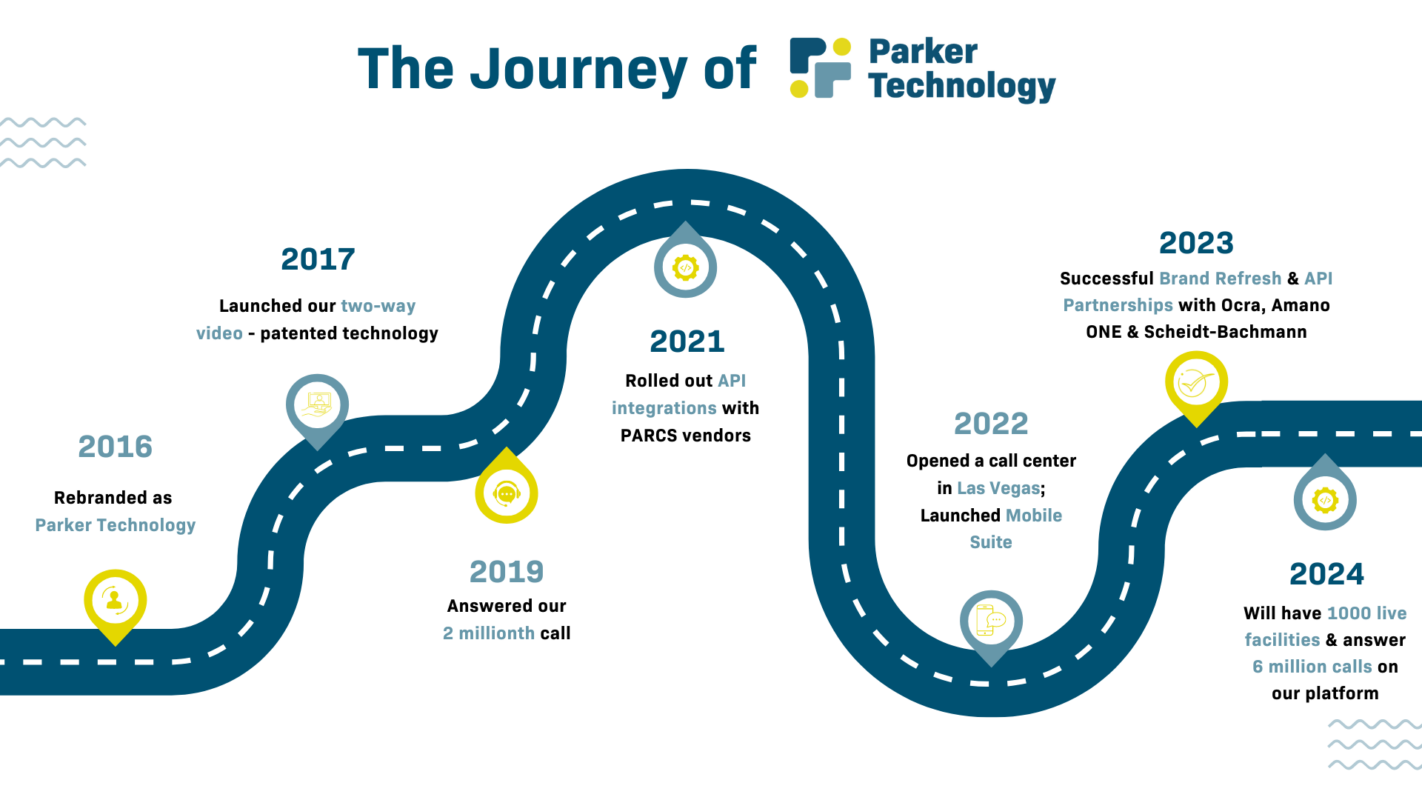The history of Parker Technology can be traced all the way back to the early 2000s when parking operators began removing cashiers and replacing them with automated parking and revenue control systems (PARCS). At that time, the concept of replacing actual humans with virtual humans via technology became the focus of the company. Patents were filed for the novel use of two-way video technology in a parking facility when a parking customer experienced an issue. Multiple patents were eventually secured as automation became the norm in parking facilities.
In 2015, the software platform was rebuilt as a cloud-based system and the company was officially launched as Parker Technology. In 2016 Parker was spun out as an independent and separately funded entity with a full leadership team and a mission to improve the customer experience through remote management. At that time, Parker was handling 5,000 help calls per month from less than 50 facilities.

The technology and service levels soon proved to be something valued by the parking community and Parker embarked on a growth curve that saw revenues double, or nearly double, every year for the next 3 years. During that time, the software was being continuously enhanced with features such as recordings and the ability to take an audio-only call from any existing previously installed intercom.
In 2019, the number of facilities Parker served had grown 5-fold to 250 and revenue growth was accelerating. Thus Parker secured a series seed round of capital and set a plan to rebuild its software application into a modern, fully-extensible platform to participate in the digital transformation gaining momentum in the parking industry.
In 2020, Parker demonstrated the full power of remote management and automation when COVID forced parking operators to send employees home and rely on Parker to help parking customers remotely and keep their facilities safe with gates down. Late in that year, Parker launched its “Delta” software platform and began to deepen connectivity to PARCS equipment through APIs.
During the next three years, as revenue doubled again, the software platform became the focal point as Parker’s development team built API connections to Flash, Amano ONE, TIBA and Ocra and launched a suite of mobile solutions (Mobile Queue and Mobile Endpoint). The company also broadened its customer base to include parking operators that licensed the software to take calls in their own call center, or customers who wished to take their own calls during the day and send calls to Parker’s call centers overnight and on weekends.
In 2022 Parker raised a second round of growth capital and opened a second call center in Las Vegas to take advantage of the time change and service-based economy in that region.
In 2023 Parker refreshed its brand, deployed AI in the Quality Assurance department and formed a strategic alliance with Ocra. That strategic alliance involved leading Ocra’s series seed capital round, taking a seat on their board of directors and building the Partner API to improve visibility and the customer experience when a parking patron experienced issues with an online parking reservation.
2024 will be an exciting and pivotal year for Parker as the company eclipses a major revenue milestone, transforms its operations through the deployment of artificial intelligence and crosses the threshold of 1,000 facilities and more than 200,000 calls per month handled by the platform across 46 states and Canada.

Brian Wolff
CEO
Brian brings 35 years of business experience in the parking, technology and life sciences industries to his position as President & CEO of Parker Technology. Under his leadership, Parker has achieved 8 years of revenue and customer growth, all while evolving a cloud-based service and software platform to be infinitely configurable to meet the needs of all types of parking operations.
